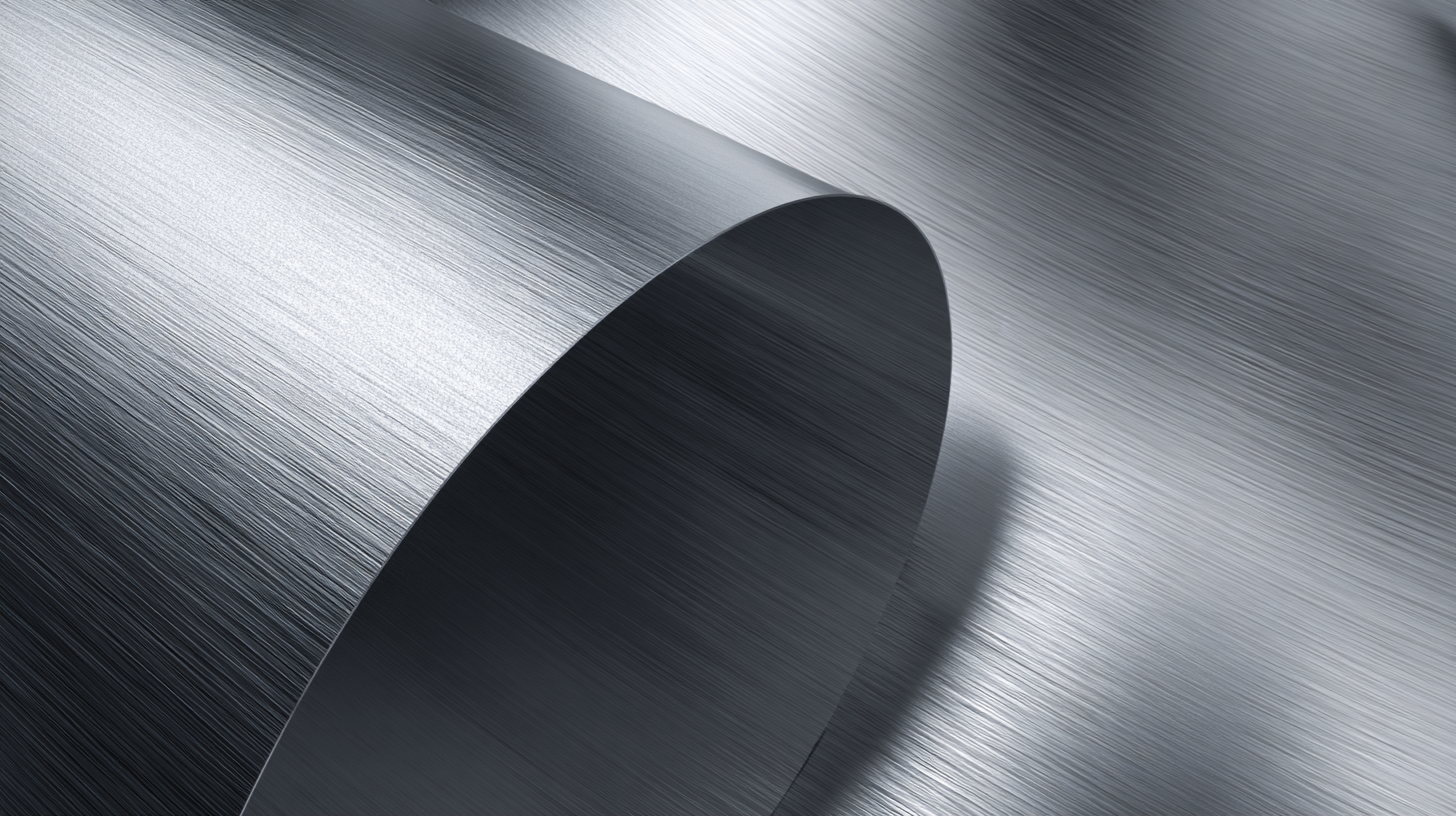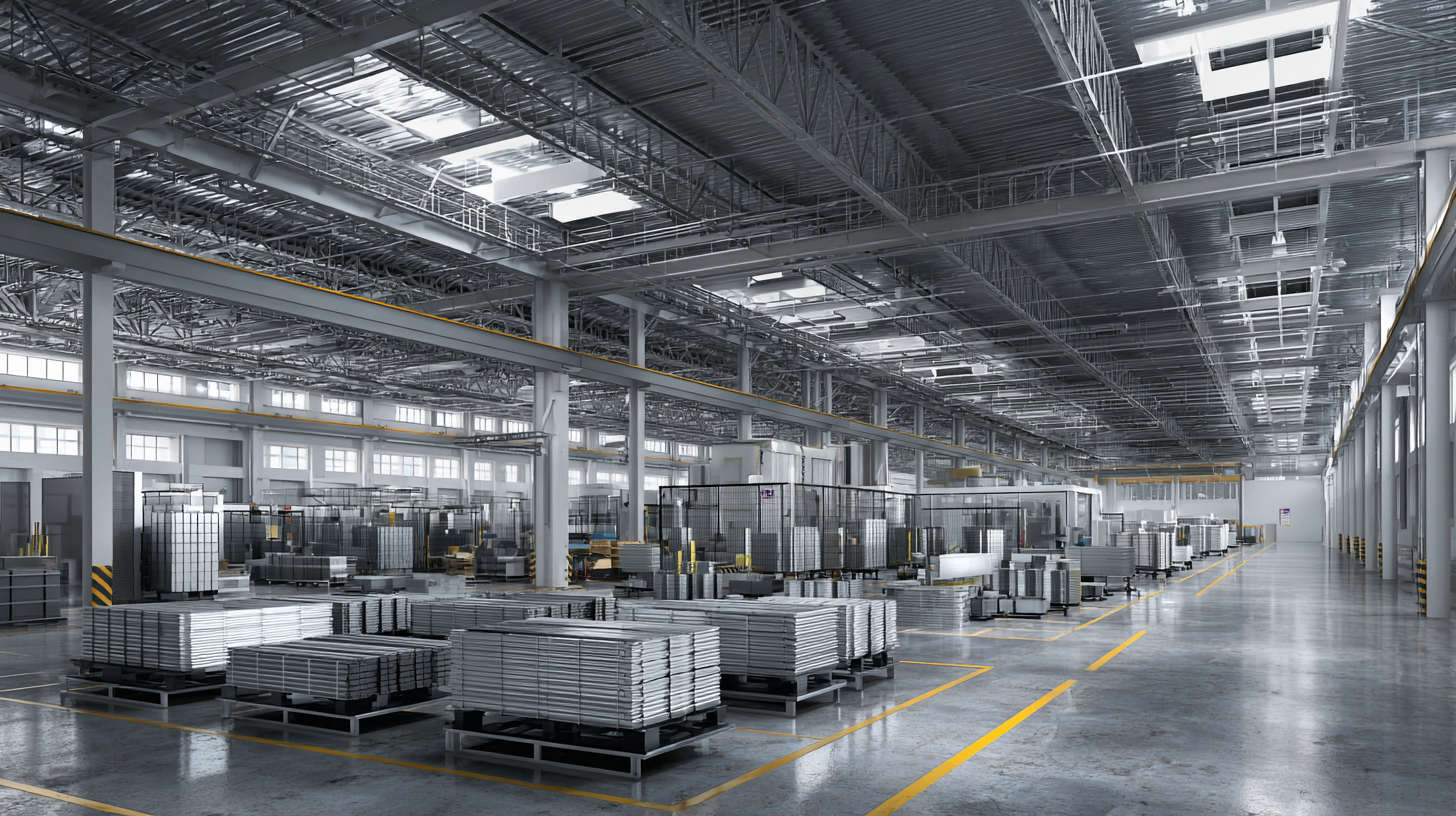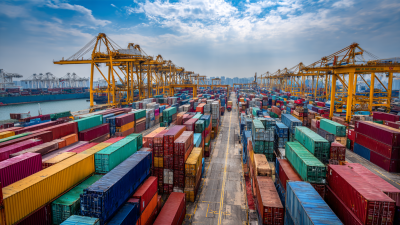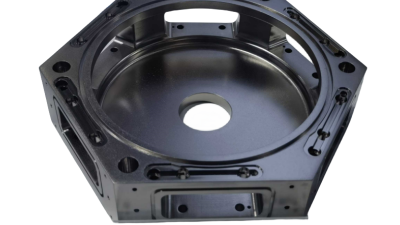Discover Superior Manufacturing with Chinas Best T351 Aluminum Solutions
Table of Contents
- Innovative Trends in T351 Aluminum Production: A Data-Driven Overview
- Understanding the Advantages of T351 Aluminum in Manufacturing Processes
- Key Industry Metrics: T351 Aluminum vs. Other Alloys in Performance
- Sustainability in T351 Aluminum Manufacturing: Facts and Figures
- Global Market Demand for T351 Aluminum Solutions: Insights and Projections
- Case Studies: Successful Applications of T351 Aluminum in Various Industries
- Exploring the Benefits of Customized Aluminum Sheets in Construction: A Focus on China's 2024 Manufacturing Prices
- FAQS
- Related Posts
You know, in the world of aluminum manufacturing, choosing the right supplier is a big deal—especially for industries that depend on top-notch materials. Take the T351 aluminum alloy, for example—it's pretty popular because it offers an impressive strength-to-weight ratio and resists corrosion really well. You'll see it used all over the place, from airplanes and spacecraft to ships. I read somewhere that demand for high-quality aluminum is expected to increase by about 4.5% every year—that's a lot! So, finding reliable manufacturers who can keep up with these growing standards becomes super important. That's where Shanghai Miandi Metal Group Co., Ltd. comes into play. They’re a standout distributor, offering a wide range of aluminum products—from the 1000 series all the way to the 8000 series—so you can count on getting top-tier T351 aluminum solutions. Honestly, by understanding what to look for in a good manufacturer and comparing your options, businesses can really boost their efficiency and make their products last longer. It’s all about making smart choices that really pay off in the long run.

Innovative Trends in T351 Aluminum Production: A Data-Driven Overview
When it comes to aluminum production, the T351 temper really marks an important milestone, especially for high-performance fields like aviation and aerospace. People often praise T351 aluminum for having an unbelievable strength-to-weight ratio and excellent fatigue resistance—no wonder it’s a go-to for structural parts that need to last. Thanks to recent advances in how we make this stuff, driven mainly by data analysis and cutting-edge manufacturing tech, we've managed to make the process smoother, cut down on waste, and keep the quality super consistent.
At Shanghai Miandi Metal Group Co., Ltd., we're proud to offer a broad selection of aluminum products—from the 1000 series to the 8000 series—including plates, rods, and tubes. We’re all about delivering top-quality T351 aluminum solutions that meet strict industry standards. Tweaking our manufacturing processes with the latest trends hasn't just made us more efficient—it’s also helped us become a leader in providing high-grade aluminum materials, especially for critical sectors like shipbuilding and a lot more.
Discover Superior Manufacturing with China's Best T351 Aluminum Solutions
| Property | Value |
|---|---|
| Density | 2.70 g/cm³ |
| Yield Strength | 325 MPa |
| Ultimate Tensile Strength | 420 MPa |
| Elongation at Break | 12% |
| Thermal Conductivity | 150 W/(m·K) |
| Electrical Conductivity | 35% IACS |
| Modulus of Elasticity | 70 GPa |
| Specific Heat Capacity | 0.897 J/(g·K) |
Understanding the Advantages of T351 Aluminum in Manufacturing Processes
The T351 heat treatment process really boosts the mechanical properties of aluminum alloys, making them super valuable across a bunch of industries—think aerospace, aviation, and more. When we’ve machined aeronautical aluminum alloy AA2024-T351 under dry conditions, it’s given us some pretty important insights into how it performs. For example, studies show that by tweaking the cutting forces and chip segmentation, you can actually make the whole process more efficient and even extend the life of your tools. We’ve also noticed the buildup of an edge during machining, which actually highlights how crucial it is to understand the thermal and mechanical behaviors of T351 aluminum to get the best results.
And it’s not just about machining—people are also paying attention to its electrochemical properties, especially when it comes to fighting corrosion. For example, researchers have developed tiny Al3+ ion-selective microelectrodes that help monitor corrosion sites in real time. Plus, with advanced tools like scanning electrochemical microscopy, scientists can observe how the alloy segregates and how electrochemical activity varies, especially around welded areas. All these developments are a big deal—they help improve the design, safety, and overall reliability of aerospace components. And naturally, companies like Shanghai Miandi Metal Group Co., Ltd. are making sure to offer a wide range of aluminum solutions tailored for different industrial needs, fitting right into this cutting-edge scene.
Advantages of T351 Aluminum in Manufacturing Processes
Key Industry Metrics: T351 Aluminum vs. Other Alloys in Performance
The aerospace world still heavily favors aluminum alloys, and for good reason—they've proven themselves time and again with their reliable performance and handy properties. When it comes to options, the T351 aluminum really stands out. It strikes a great balance between strength, weight, and resistance to corrosion, which makes it a better pick than alloys like 2024-T3 or 7075-T6 for many applications. Sure, composites are definitely making waves lately, but aluminum alloys are still super relevant, especially in aircraft structures where having a high strength-to-weight ratio is kinda non-negotiable.
T351 aluminum isn’t just about weight; it also performs really well under fatigue, meaning it can handle those cyclic loads that come with things like airplane wings. Studies have shown that tweaking the chemical makeup and grain structure of these alloys can really impact how cracks grow and how long the material lasts. Plus, with new coatings that boost corrosion resistance, these aluminum parts last even longer in tough environments. All of this pretty much cements T351 aluminum as a top choice for aerospace manufacturing—reliable, safe, and built to perform in the most critical situations.
Sustainability in T351 Aluminum Manufacturing: Facts and Figures
You know, sustainability in T351 aluminum manufacturing is really becoming a big deal these days. More and more industries around the world are trying to cut down on their environmental footprint, and it’s pretty clear that greener practices are the way to go. Recent reports emphasize just how important it’s become for the manufacturing sector to adopt eco-friendlier methods, especially when producing materials like T351 aluminum. The aluminum industry, which has historically contributed a lot to greenhouse gas emissions, is actually making strides to change that — they’re recycling scrap aluminum more than ever and finding ways to use energy smarter during production. It’s pretty encouraging.
Plus, there’s a noticeable shift from old-school manufacturing techniques to those newer, more sustainable approaches. Things like additive manufacturing (aka 3D printing) are really picking up speed, and the latest research suggests these techs can cut waste and boost energy efficiency quite a bit. If the T351 aluminum industry keeps pushing in this direction, it can be a real game-changer—supporting both economic growth and caring for the planet at the same time. As regulations tighten and customers get more eco-conscious, committing to sustainable aluminum solutions feels like the smart move. It’s all about making sure we leave behind a healthier planet for future generations — no pressure, right?
Global Market Demand for T351 Aluminum Solutions: Insights and Projections
Hey, have you noticed that worldwide demand for T351 aluminum solutions is really picking up? People are going crazy for it because of its amazing strength and how versatile it is across all kinds of industries. The T351 label basically means the aluminum has gone through a specific heat treatment and an artificial aging process, which boosts its mechanical properties—super important for stuff like airplanes, spacecraft, and ships. As the market keeps shifting and growing, manufacturers and distributors really need to stay on their toes to keep up with this high-performance material demand.
At Shanghai Miandi Metal Group Co., Ltd., we totally get how important it is to offer a broad spectrum of aluminum products—everything from the 1000 to 8000 series. Our inventory includes aluminum plates, rods, tubes, and so on, all designed to support industries that depend on strong, durable aluminum components. With the global push toward more use of T351 aluminum, we’re dedicated to providing only top-quality materials so our clients can face whatever challenges come their way, without settling for less.

Case Studies: Successful Applications of T351 Aluminum in Various Industries
In recent years, T351 aluminum has really come into its own across a bunch of industries. It’s known for being super strong yet lightweight, and it resists corrosion like a champ. For example, in aerospace, these T351 aluminum alloys—celebrated for their excellent mechanical properties—are pretty much a go-to for building aircraft fuselages and wings. I read a report from the Aluminum Association in 2022 that said the demand for lightweight materials like this has been climbing at more than 15% each year. That really highlights just how important aluminum solutions like T351 have become in the industry.

You know, it’s not just airplanes—T351 aluminum has also made waves in shipbuilding. Its combination of being lightweight yet tough makes it perfect for building boats that have to withstand all sorts of harsh maritime conditions. A recent study from the International Maritime Organization pointed out that ships built with advanced aluminum alloys, including T351, can cut fuel costs by around 10%. That’s a big deal because it lowers operational expenses and helps the environment, too.
Here at Shanghai Miandi Metal Group Co., Ltd., we take pride in offering a wide range of aluminum products—from the 1000 series all the way up to the 8000 series, including T351 options. Our products, like plates, rods, and tubes, are designed to meet the high standards needed for demanding applications in aviation, aerospace, and shipping industries. Our goal is to help our clients get the best results out of their manufacturing projects, and we’re here to support that every step of the way.
Exploring the Benefits of Customized Aluminum Sheets in Construction: A Focus on China's 2024 Manufacturing Prices
The construction industry is increasingly relying on customized materials to meet specific project requirements, and aluminum sheets are no exception. In 2024, China's manufacturing landscape is expected to pivot towards more tailored solutions, particularly in the production of high-grade aluminum sheets. Among the most sought-after attributes is the 2024 grade aluminum, known for its superior strength and workability, making it ideal for various structural applications in construction.
Available in a range of thicknesses from 0.3mm to 300mm, the 2024 aluminum sheets in both T4 and T351 temper offer versatility to architects and engineers. The T4 temper provides enhanced machinability, which allows for intricate designs and precise fabrications, while T351 temper significantly improves durability, making it suitable for load-bearing applications. With the rising demand for customized options, manufacturers are poised to meet this need efficiently, contributing to both cost-effectiveness and sustainability in construction practices.
As manufacturing prices adjust in 2024, the focus will undoubtedly remain on delivering value through custom solutions. Builders looking for reliability and tailored specifications can benefit from investing in these aluminum sheets. The combination of lightweight design and high strength ensures that projects not only meet aesthetic and functional standards but also maintain economic feasibility in the long run. With the collaboration between manufacturers and construction firms growing stronger, customized aluminum sheets stand to play a significant role in the evolution of modern building techniques in China.
FAQS
: T351 aluminum is a specific temper of aluminum that is known for its exceptional strength-to-weight ratio and superior fatigue resistance, making it ideal for high-performance applications in industries such as aviation and aerospace.
T351 aluminum offers a superior balance of strength, weight, and corrosion resistance compared to other alloys like 2024-T3 and 7075-T6, making it a preferred choice for various structural applications.
T351 aluminum is primarily used in the aerospace industry, but it is also critical in sectors like shipbuilding and other industries requiring high-performance aluminum solutions.
Innovations in T351 production techniques, driven by data analysis and modern manufacturing technologies, have streamlined processes, reduced waste, and enhanced product consistency.
T351 aluminum exhibits impressive fatigue performance, which is essential for components that experience cyclic loads, such as aircraft wings, enhancing their durability and reliability.
Advancements in corrosion resistance techniques, such as functionalized coatings, significantly improve the longevity of T351 aluminum components in harsh environments.
Shanghai Miandi Metal Group Co., Ltd. is a leading distributor of aluminum products, specializing in high-quality T351 aluminum solutions tailored to meet stringent industry standards.
While composites are gaining traction, the maturity and versatility of aluminum alloys, particularly T351, ensure their continued relevance and effectiveness in aircraft structures due to their high strength-to-weight ratios.
Variations in the chemical composition and grain structure of aluminum alloys significantly impact fatigue crack propagation and overall durability, influencing the performance of T351 aluminum.
Data analysis enhances production techniques, leading to optimized manufacturing processes, reduced waste, and improved product consistency in T351 aluminum production.
Related Posts
-

Global Market Analysis 2025 for Best Weldable Aluminum Alloy and How to Choose the Right Supplier
-

Understanding Import Export Certifications for Best Al 2024-T351 with a Step by Step Guide
-

Navigating Import and Export Certifications for Best 6061 Aluminum Alloy Products in Global Markets
-

Global Manufacturing Excellence of Best 5052 Aluminum Alloy Showcasing Chinese Pride in Worldwide Exports
-

Global Excellence in Aluminum Plate Production Proudly Crafted in China
Blog Tags:


